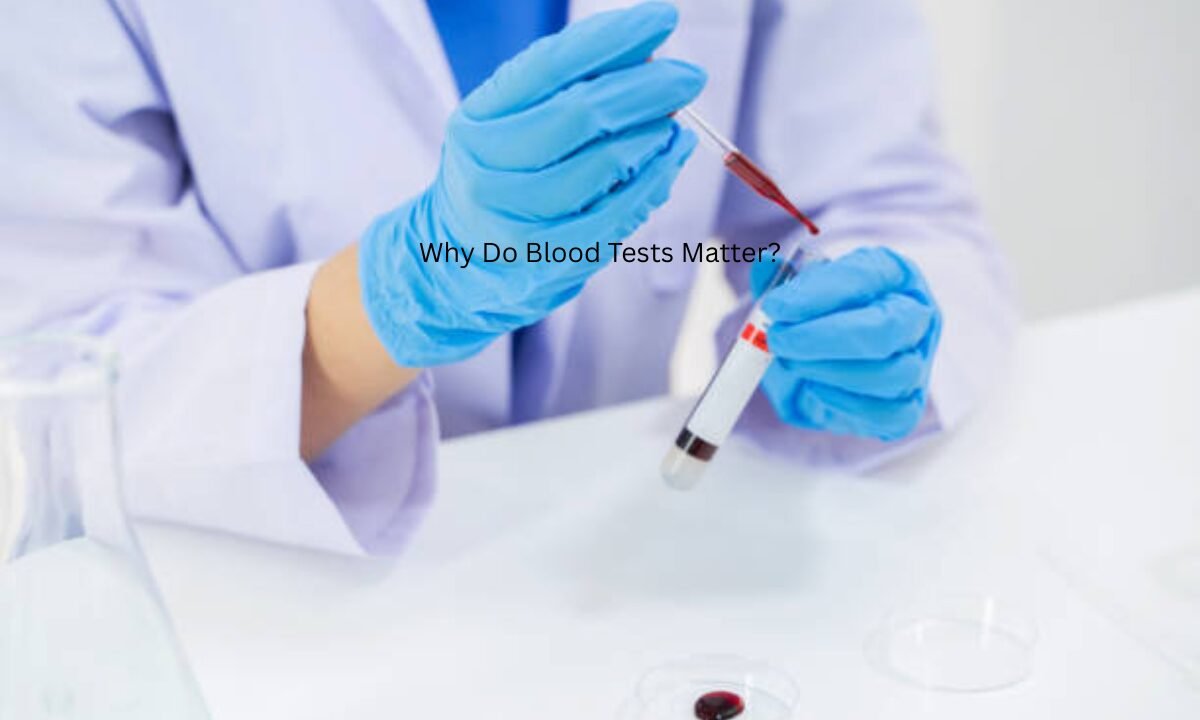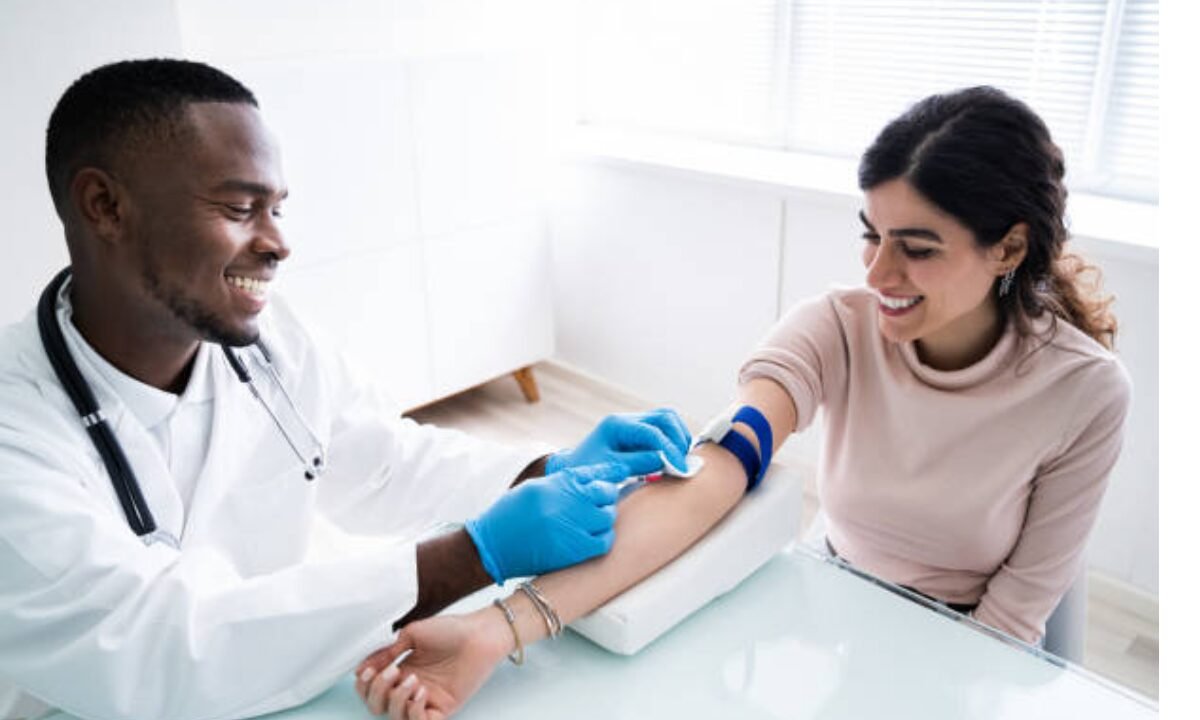Health is valuable and early disease diagnosis can count on everything from a rapid recovery to a bigger health problem. One of the easiest yet most effective ways to detect diseases at an early stage is through Blood Tests. These tests provide important clues on what is happening in the body often before symptoms occur. Through ongoing blood tests, especially in cities like Bangalore, one can be empowered.
Why Do Blood Tests Matter?

The blood transports oxygen, hormones, and as well as, waste material; throughout the body. A single sample can reveal a lot about your overall health to doctors. Consider it an insight into the behind-the-scenes workings of your body.
Blood Tests help in:
- Monitoring general health
- Detecting hidden diseases
- Renal, liver, heart functions (such as proceeding to renal, liver, heart function-)
- Guiding treatment decisions
Having this knowledge means, issues can be seized before we actually have a large-scale problem, which will save time, income, as well as likely lives.
Early Disease Detection: The Game Changer
Spotting Trouble Before It Starts
Most diseases are symptom-free in their early stages. Complications like diabetes smooth, or even heart disease can quietly damage your whole body for years. By the time you feel the symptoms, considerable damage may have been already within it. Blood Tests though is where things get a game changer — it flag issues at the very beginning AND THE MOST TREATABLE.
Which particular diseases blood tests can identify in the early stages?
Blood tests can lead to the early detection of a great number of diseases or problems, even when you are not showing any symptoms. Here’s an organized overview:
1. Diabetes and Pre-diabetes
Easy Explanation: Blood sugar (glucose) tests check if your blood sugar is too high which could be a sign of diabetes or pre-diabetes.
Info: Tests such as fasting blood glucose and HbA1c can pick up high glucose months or even years before major symptoms rearing their ugly head. Early detection means better control and thus preventing nerve, eye, or kidney damage.
2. Anemia and Blood Disorders
Easy to Understand: Blood tests will show if you are not having enough red blood cells (anemia) or if there are abnormal cells.
Details: Complete Blood Count (CBC) is used to find:
- Iron-deficiency anemia
- Vitamin B12 and folate deficiency anemia
- Leukemia and other blood cancers
- Sickle cell disease and thalassemia
3. Heart Disease Risk
Plain Sermons: Blood tests check cholesterol & fats which are the main risk factors for heart attacks and strokes.
Details: Lipid profiles measure:
- Total cholesterol
- LDL (“bad”) and HDL (“good”) cholesterol
- Triglycerides High numbers may signal risk even if you feel well.
4. Kidney and Liver Problems
Just Simply Speaking: Organs like the liver, and the kidneys throw some chemicals into the blood if the organs are damaged.
Details:
- Liver Function Tests (LFTs) & Kidney Function Tests (KFTs) detect initial damage.
- The conditions include hepatitis, cirrhosis, fatty liver, and early-stage chronic kidney disease.
5. Thyroid Disorders
What is Thyroid Function Test: Simple Explanation: Thyroid function test (FT4 and TFT) to check whether the thyroid contains enough hormones or not, and it also delivers impact, making you energetic and growing.
Details:
- Blood tests for TSH, T3, and T4 will confirm hypothyroidism (underactive) and hyperthyroidism (overactive).
- The sooner treatment is given, the less cutaneous sarcoidosis will cause fluid retention, heart problems, or extreme fatigue.
6. Vitamin and Mineral Deficiencies
Easy Explanation: Being tired, unable to concentrate, or having low immunity may be caused by lacking some vitamins and minerals.
- Information: Vitamin and mineral deficiencies can be detected by a blood test such as:
- Vitamin D, B12, eks, mail, Mg etc.
- Early detection does prevent long-term complications, especially in youth and the aged.
7. Infections
Easy Explanation: Your body infection can be revealed in the blood test before you get sick.
Clarification: Tests like:
- Viral (HIV, hepatitis, dengue)
- Bacterial (typhoid, sepsis)
- Other infections (malaria, tuberculosis)
8. Cancer (Certain Types)
Easy Explanation: Some cancers alter blood in such a way that it can be spotted quickly.
Details: Tests may look for:
- High white blood cell counts (e.g., leukemia)
- Tumor markers (PSA for prostate, CA-125 for ovarian cancer, AFP for liver cancer)
- Many ask, “Can a blood test detect cancer?”—for some cancers, yes, but not all.
For those worried about cancers, especially with a family history, doctors may suggest tests to look for these markers. Nevertheless, a can a blood cancer be detected query must be addressed in depth with a healthcare professional, because further tests or checks may be required to confirm.
9. Autoimmune Disorders
Easy Explanation: Your own body can sometimes get a mistaken grip from your immune system, which some blood tests can show you.
Details:
ANA, rheumatoid factor, and CRP can determine the diagnosis of lupus, rheumatoid arthritis, etc.
10. Blood Clotting Disorders
Easy Answer: Your blood samples can check if your blood is clotting as it should to avoid bleeding or clotting.
Details:
- Bleeding or clotting risks can be discovered early by PT, INR, and aPTT tests (e.g., hemophilia, and DVT risk).
- Types of Blood Tests for Early Detection
- Some common blood screenings include:
- Complete Blood Count (CBC): Reveals infections and anemia.
- Blood Sugar Tests: Identify risk or presence of diabetes.
- Lipid Profile: Evaluates cholesterol for cholesterol heart disease risk.
- Liver and Kidney Function Tests: Assess organ health.
Other options, such as blood tests for the deficiencies of a doctor’s vitamins and minerals can also identify problems such as fatigue or poor immunity due to a simple lack of nutrition. These many commonly performed blood test packages now include these checks, therefore the complete check is more accessible.
Blood Test Packages: One-Stop Solution
The more modern Blood test packages provide a package of all retained tests in one. Instead of visiting the lab multiple times, these packages can screen for a range of conditions—cholesterol, diabetes, thyroid, and nutritional deficiencies—saving time and simplifying preventive care.
The Bangalore Advantage: Quality and Accessibility
Access to Advanced Testing
Living in a tech-savvy city, residents have easy access to advanced healthcare. Many providers offer Blood Tests in Bangalore with quick turnaround and online reports. The process has become more convenient, with home sample collections and digital bookings.
Whether you are seeking regular screenings or a specific blood test for vitamin and mineral deficiencies, Bangalore’s labs offer a wide range of services. Choosing an organized Blood Test in Bangalore will save you immense time and too will result in high accuracy.
Making Blood Tests a Routine
Frequency and Who Needs Testing
How frequently to be tested? It is determined by age, family background, lifestyle, and risk factors. Generally, most specialists would recommend an annual check for adults or more in case you have particular threat factors or health situations.
Selecting the Best Blood Test Packages
Choosing overall blood test packages based on your health history could be very reassuring and be a handy tool in ensuring long-term health and wellness. Whether annually or in response to feelings of excessive fatigue or unexplained weight loss, the packages assist in tracking overall health status.
Conclusion: Take Charge of Your Health
Blood Tests are not just a means of medically diagnosing disease; they are vital health weapons affording a healthier, longer life. By practicing regular screening—especially with the ease of a _Blood Test in Bangalore_—anybody can discover any potential problems early on and do so before they may lead to serious complications.
From detecting concealed diseases and finding answers to questions such as can blood test detect cancer and to discover a blood test for vitamins and minerals deficiencies, the benefits are apparent. With a growing range of blood test packages designed for individual needs, it has never been easier to make health a priority.
Koshikaa Screening Centre is renowned for providing comprehensive and reliable laboratory testing services, including advanced blood tests, in a patient-friendly environment in Bangalore.

